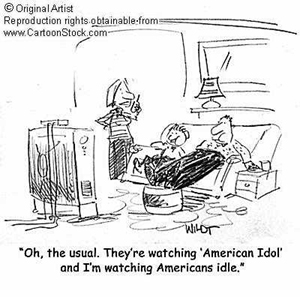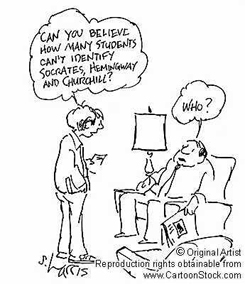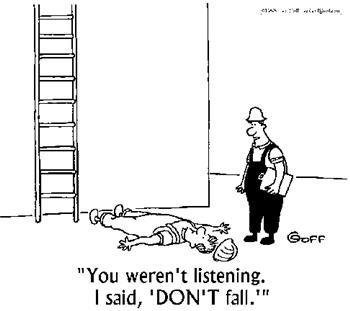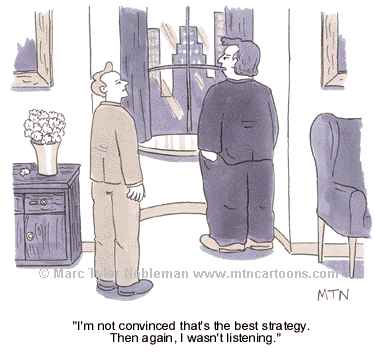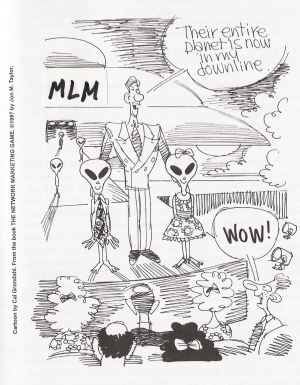 Here is a fantastic article on empathy by Kelly Gerling, Ph.D. published in The Spinal Column, Nelson Marlborough Health Services, Nelson New Zealand, in December 2000. Empathy is the ability to put yourself into someone else’s shoes to feel and think what they are feeling and thinking. Every great leader must develop the ability to think from the perspective of those they lead. Without this ability, you will not build deep connections with others. People follow leaders who they feel understand them. Here is the article. God Bless, Orrin Woodward
Here is a fantastic article on empathy by Kelly Gerling, Ph.D. published in The Spinal Column, Nelson Marlborough Health Services, Nelson New Zealand, in December 2000. Empathy is the ability to put yourself into someone else’s shoes to feel and think what they are feeling and thinking. Every great leader must develop the ability to think from the perspective of those they lead. Without this ability, you will not build deep connections with others. People follow leaders who they feel understand them. Here is the article. God Bless, Orrin Woodward
On a planet far away, the creature had been tunneling through underground rock, killing miners and sabotaging life support systems needed for the miners to survive underground. The USS Enterprise was called in by the mining authorities to help stop this violence against the miners on this planet. Captain Kirk and Mr. Spock took the lead to try and remedy the situation.
This episode of the original Star Trek TV series, called Devil in the Dark, features a species called the Horta, a creature that lives underground.
Rather than kill the creature, the away team decides to attempt to negotiate with it to develop a win/win solution. The trouble is, they had no understanding of its life cycle, intelligence or motives.
They decided that Mr. Spock would attempt a Vulcan mind-meld with the creature to understand its violent behavior. The creature allowed the mind-meld. By doing the Vulcan mind-meld, Mr. Spock developed a deep, accurate and felt understanding of the creature. He realized that the she lives her whole life underground, is the last of her kind, her environment was threatened by the mining activities, she was a mother and the miners have been killing her eggs. She was defending the eggs when she attacked and killed the miners, and began sabotaging their life support systems.
This understanding became the basis for negotiations whereby the miners could mine in certain areas, and stay away from the Horta’s eggs and environment. In return, the Horta would help them with some tunneling and otherwise leave the miners alone.
It was the mind-meld and the empathy it enabled Mr. Spock to experience that made a win/win, cooperative solution possible.
Empathy
The literature of Star Trek has other characters that exemplify the use of empathy and its importance in improving relationships. For example, Counselor Troi from the Next Generation series comes from a planet inhabited by “empaths” who can experience the feelings, images, words and intentions of others through a form of empathic telepathy.
Fiction often makes clear what is possible in the real world. In my work in helping people in conflict, the use of or development of empathy is nearly always necessary for healing values violations, giving relationships new and healthy beginnings, and allowing real win/win solutions to emerge.
The easiest way to understand the importance of empathy is to recall times when you have been misunderstood or have been in pain. Think of how nice, how pleasant, indeed, how heart-warming it is when someone develops and demonstrates empathy for you.
When someone understands our situation, feels our pains, and deeply cares for our well-being, it changes their behavior and ours. It makes it possible for a damaged relationship to heal and even to emerge from the discussion even stronger than it ever was. This is what empathy makes possible.
Obstacles to Empathy
Perhaps the most common obstacle to empathy for others, is a failure to set aside our own pain long enough, and well enough, to walk in the steps of others. When we get stuck in our own pain, it makes it difficult to feel the pain of others, or to understand them deeply.
Yielding to victim behaviors such as blaming, avoiding, whining, labeling negatively or sarcasm also prevents empathy for the object of one’s negativity. Instead of yielding to destructive impulses, it is far better to heal the wounds that underlie them. Then empathy and other thinking skills become available to you.
Many of our automatic reactions to people with unmet needs or people in conflict come from family or cultural patterns. The various inner capabilities in the VBL system have different degrees of emphasis in different families and cultures. Not all families and cultures promote empathy as a good skill to develop and use. Therefore it is important to recognize thinking limitations that you have inherited from your family and cultural background. Once you’ve done that you can work on overcoming such limitations.
So What If I’m Not Good At Empathy?
If you recognize that you are not so good at empathy, that is the first step toward developing this skill.
Empathy is not limited to particular families, genders, cultures or classes. It is a human skill, one that any of us can develop. When another person is in pain, you can feel it, or learn how to. When another is in a situation different from your own, you can learn to fully understand their experiences. In short, you can develop empathy, each of us can — it is not genetically withheld. It is part of our cognitive heritage as human beings.
How to Develop Your Empathy
One way to develop or activate your empathy for someone is to do so directly. That is, mentally and emotionally use your imagination to step into the other person’s experience. Some actors do this as a way to create their character. Doing so is like the Vulcan mind-meld from Star Trek stories — it happens all at once. Most people have the capability of bringing about empathy in this way. Anyone who dreams at night can use the same skill of imagination, during the day, to put themselves into the experience of others.
Another way to develop your empathy is to remember when you have been in a situation similar, in crucial respects, to the situation the other person is in. If the other person feels disrespected or wronged, remember when you have been disrespected or wronged. If the other person is angry, recall when you have been angry, and feel it. If the other person has dug in their heels and refuses to budge from a position or point of view, remember when you have done the same thing.
Other methods include meditating for understanding, interviewing and listening to learn about the person’s inner world, praying for compassion, and activating values such as a feeling of caring and a sense of responsibility.
Using any of these methods to develop a felt understanding for another person will result in an increase in your empathy. And this will give you a chance to lead the way to deepening understanding, resolving conflicts, and ultimately fulfilling values.
Empathy in Balance with Other Capabilities
A good way to understand VBL inner capabilities like empathy, integrity and objectivity is to visualize them like chairs around a table of leadership intelligence. (Other “chairs” in the VBL system are analytical thinking, seeing the good in others, preventing the victim cycle, long-term and wide-angle vision, and values in action to bring about a leadership cycle.)
In the table scheme, the other person’s chair is the 2nd person position that enables us, when we sit in their chair, to experience empathy; one’s own chair becomes is the 1st person position from which integrity becomes possible; a dispassionate observer’s chair is the 3rd person position that bring about objectivity. (The other chairs expand thinking even further.)
Any excessive “getting stuck” in one chair to the long-term exclusion of the others will throw one’s leadership out of balance. For example, while empathy is a necessary inner skill for leadership, if the needs of others are always the main emphasis, the inevitable result will be some form of co-dependence, and your own values will be neglected. Likewise, an overemphasis on one’s own needs, values and situation, that is, getting stuck in the integrity chair, leads to egotistical self-centeredness. Furthermore, too much objectivity leads to a cold and distant detachment.
It is best for a leader to rotate around the table of leadership intelligence, sitting in each chair, mentally, in a dynamic balance. This type of balance between these and other chairs brings about a coherent type of expanded thinking — leadership intelligence — the result of an integration of our various capabilities.
Results of Empathy in Balance
The way to enjoy good relationships with nearly anyone is to approach them as complete equals. By that I don’t mean equal skills or equal positions or the same roles in an organization. Rather, I mean you can see others as equals in a basic, human sense.
Each person you or I meet is the same as us in that they, like us, seek to fulfill positive healthy values and to prevent values violations and their resulting pain. They, like us, have moments of weakness and make mistakes. They, like us, want to be understood.
By recognizing, through empathy, that each other person is the same in such a deep and basic ways, it is easier to communicate genuinely, to understand them, to bring about cooperation, and to lead the way to the fulfillment of healthy values like trust and respect, excellence and service, love and caring.
Develop your empathy. You’ll be a better, more understanding, more compassionate leader as a result. You’ll confirm how others are similar to you. And you will enjoy discovering more of the mysteries of how others are different from you, even those who seem like creatures, whose behavior seems to make no sense.
I’m reminded of a line from the song, Colors of the Wind from the Pocahontas soundtrack, written by Stephen Schwartz:
” . . . if you walk the footsteps of a stranger
you’ll learn things you never knew you never knew”










